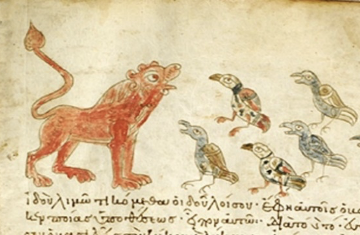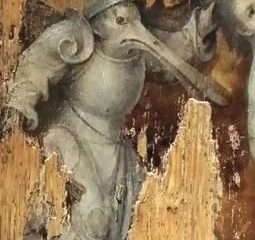English version : Mythographical encyclopaedias
Far beyond the naturalist tradition, the Renaissance is characterised by a blooming of encyclopaedic texts in all fields. Such scholarly sums, often based on recent layers of ancient knowledge, offer a detailed, sometimes commented, and often critical overview of knowledge. In this respect, mythological tradition is one of the sensitive bridges between ancient culture and Christian dogma during Antiquity and the Middle Ages, and constitutes a favourable ground for gathering a set of profound stories and patterns on man, the world, God and history. This issue will focus on extensive works of mythographic type that convey multifaceted knowledge, from Antiquity to the Renaissance: Fabulae of Pseudo-Hyginus or Fulgence, Commentaries by Servius, Ovid moralized, the Fabularius of Conrad de Mure, the Genealogy of the gods by Boccaccio’s Genealogia Deorum Gentilium, manuscripts such as the « mythographers of the Vatican », the Violarium of Pseudo-Eudocia…
Contributions for this issue sent to the editorial staff of RursuSpicae will be peer-reviewed.
Version française : Encyclopédies mythographiques
La Renaissance se caractérise par une efflorescence de textes encyclopédiques dans tous les domaines, bien au-delà de la tradition naturaliste. Ces sommes savantes, qui souvent reposent sur des strates récentes de savoirs anciens proposent un tour d’horizon détaillé, parfois commenté, et souvent critique des connaissances. La tradition mythologique, une des charnières sensibles durant l’Antiquité et le Moyen Age entre culture antique et dogme chrétien, constitue un territoire propice pour rassembler sur l’homme, le monde, Dieu et l’histoire un ensemble de récits et de trames profondes. Ce numéro proposera des études sur les ouvrages extensifs de type mythographique, vecteurs de savoirs multiples, de l’Antiquité à la Renaissance : Fabulae du Pseudo-Hygin ou de Fulgence, Commentaires de Servius, Ovide moralisé, Fabularius de Conrad de Mure, Généalogie des dieux de Boccace, manuscrits tels les « mythographes du Vatican », Violarium de Pseudo-Eudocie…Les contributions pour ce numéro thématique envoyées à la rédaction de RursuSpicae feront l’objet d’une évaluation par peer-review.


